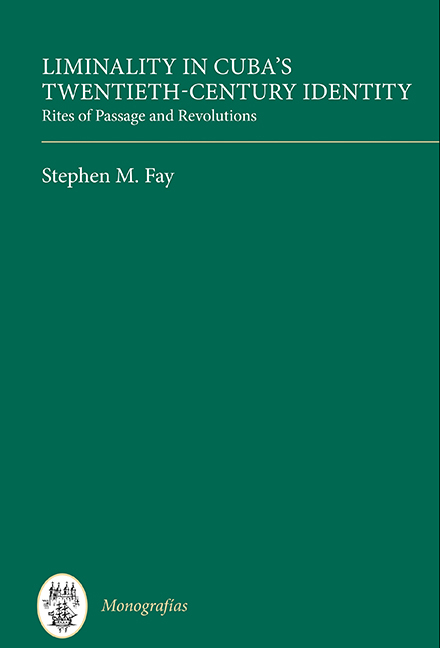Summary
On a street corner in Old Havana, two women stand talking against the white wall. Above their heads is a slogan. It's as well known to them as to everyone else on the island; they've heard it at work, and at school, and in marches on the most notable days of the patriotic calendar; they hear it most days on the radio, read it in the newspaper, see it on billboards and walls everywhere:
¡Hasta la victoria siempre!
Underneath the slogan, the women go on chatting:
‘¿Y tú cómo etá, mi’jita?’, says one.
‘Aquí mami, en la luchita’, replies the other with a shrug.
In a (somewhat simplistic) sense, these phrases spotted and overheard on a Havana street corner synthesise the different (and often antagonistic) approaches to Cuban national identity in the twentieth century that will be traced in this study. Up on the wall, the slogan exhorts the retort ¡Venceremos! and so accomplishes a collective sense and sensibility that is supremely selfassured, wholly confident of Cuba's manifest destino (as both future fate and next destination), teleological in tenor and intent. The slogan points to and rushes towards a proximate victory in which all setbacks will have been left behind, trials overcome, failures forgotten, enemies overthrown; it looks toward a perfect future in which destiny will become reality and venceremos will make way for the future perfect habremos vencido. This teleological reading of the past and the present as precursors, as sites of necessary but temporary struggles towards future peace, as the beginnings and middles to the story's inevitably happy ending, is at the epistemological epicentre of some of the perceptions and projections of Cuban national identity that will be examined here.
The luchita of the two friends also speaks of struggle, but with little teleological inflection. In their mouths, the perfect future is swapped for an undecided, uncomfortable and pugnacious present. In that shrug, the future perfect becomes a speculative, even subjunctive, present tense where the mood is of ‘maybe’, setbacks are here to stay, and future victory is only a tenuous quizás. Nevertheless, this uncertainty has not extinguished all optimism: there remains an oblique, even playful resilience where fortitude comes not from rising heroically to life's challenges, but from undermining their gravity, where the lucha is brought down a peg to a mere luchita, ineluctable and potentially painful, but not the end of the world after all.
- Type
- Chapter
- Information
- Liminality in Cuba's Twentieth-Century IdentityRites of Passage and Revolutions, pp. 1 - 26Publisher: Boydell & BrewerPrint publication year: 2019

